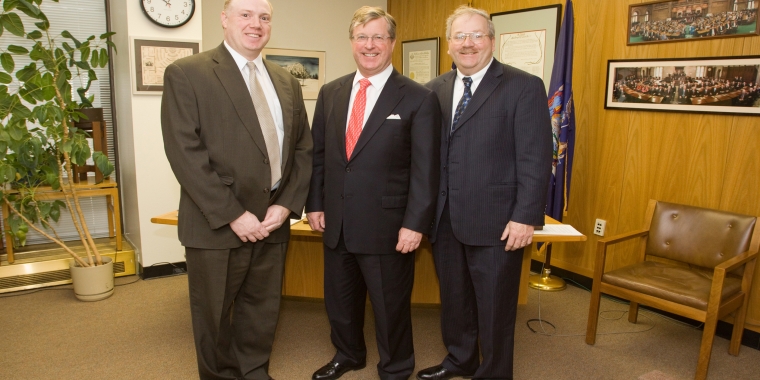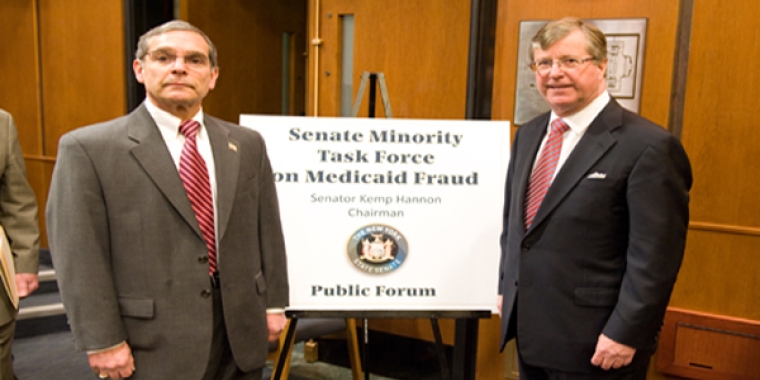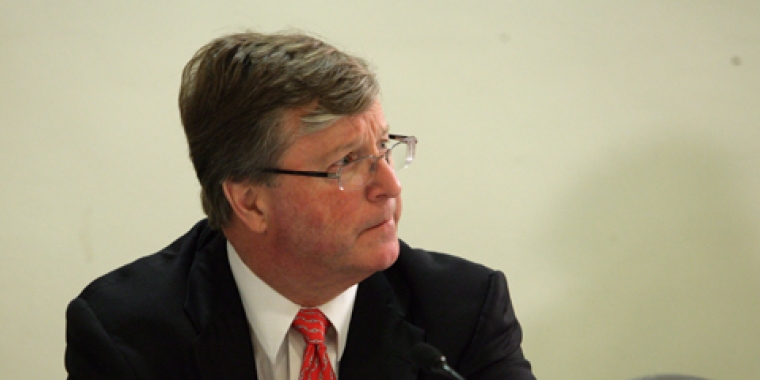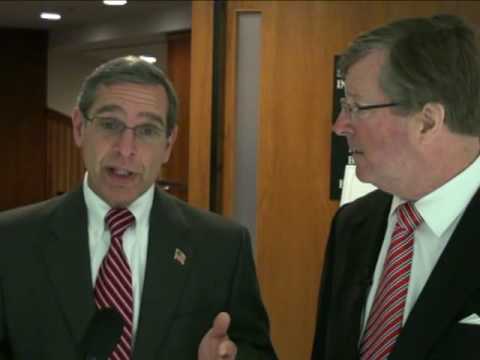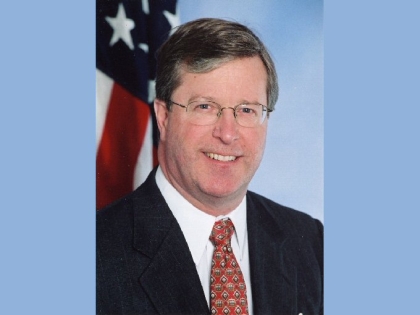
Winner's Legislation To Extend EMT Recertification Process Signed Into Law
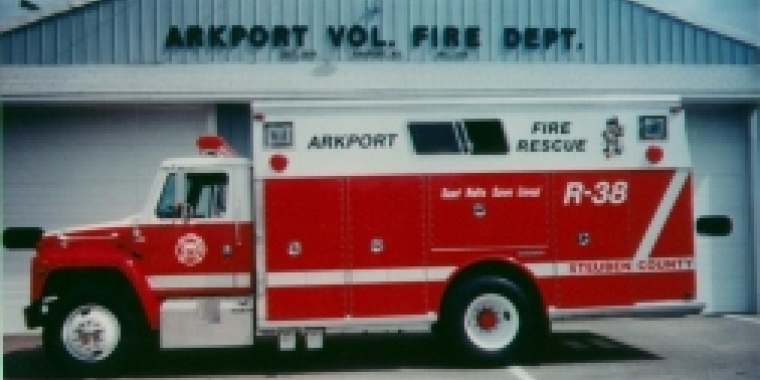
Albany, N.Y.-- Legislation sponsored this year by State Senator George H. Winner, Jr. (R-C, Elmira) to continue an alternative recertification process for emergency medical technicians (EMTs) and advanced emergency medical technicians (AEMTs), has been signed into law by Governor George E. Pataki.
Winner, who chairs the joint, bipartisan Legislative Commission on Rural Resources, said that the new law is part of a comprehensive "Rural New York Agenda" advanced by commission members in 2006. Winner noted that local legislators Assemblyman Jim Bacalles (R-C, Corning) and Assemblywoman Barbara S. Lifton (D-Ithaca) serve on the Rural Resources Commission.
"Burdensome and unnecessary training requirements contribute to an ongoing and alarming decline in the ranks of our emergency services volunteers. This alternative recertification process has helped ease the regulatory burden on EMTs, and it’s important that it’s being extended," Winner said. "We need to stay focused on ways, large and small, to help attract and retain emergency services volunteers in our communities. Every effort helps."
Emergency services volunteer recruitment and retention remains a prime focus of Winner’s Rural Resources Commission. This year’s state budget, for example, included a new income tax credit for volunteers.
Winner said that the new law, which takes effect immediately, extends the provisions of a successful 10-year pilot program, which was set to expire this month, that provides an alternative recertification process for emergency medical technicians (EMTs) and advanced emergency medical technicians (AEMTs). The program, which will be extended for another five years under Winner’s legislation (S.6976), allows EMTs and AEMTs, who have been in continuous practice and completed their necessary continuing education requirements, to renew their certifications without completing a written examination.
Winnerwill continue to use the bipartisan structure of the Rural Resources Commission to promote awareness of a Rural New York Agenda throughout state government. This week in Syracuse the Commission, together with rural affairs experts from Cornell University, are undertaking a three-day Future of Rural New York Sympoisum that is bringing together approximately 200 state and local leaders from across upstate New York to discuss and suggest specific legislative strategies to address many of the key short- and long-term challenges confronting New York’s rural regions including economic and workforce development, health care and education.
The Future of Rural New York Symposium is a key component of the Rural Vision Project, a collaborative effort between Cornell’s Community and Rural Development Institute (CaRDI), the Development Sociology Department’s Rural New York Initiative, Cornell Cooperative Extension, and the LCRR. The first phase of the Rural Vision Project involved a series of 11 regional listening sessions across the state between December 2005 and May 2006. More than 300 participants attended a listening session in their region, providing valuable information and identifying the challenges facing their communities. The Rural Vision Project Phase I Report includes the synopses of these listening sessions and other supporting information is available online. Click on the "Rural Visioning Project" icon.
"The rural vision that is emerging from this project represents the diverse opportunities and challenges of our State's unique regions. Rural development in New York must build on strong networks and partnerships, pride of place, solid citizen support, engaged local governments and enhanced regional coordination," said Max Pfeffer, Chair of the Department of Development Sociology at Cornell.
Following this week’s symposium, Winner said that a report will be issued containing major policy and program recommendations developed by participants. The report will be circulated widely to state and local policy makers and citizens.
"I’m hopeful that we can set the stage this week for a legislative session in 2007 that will be one of the most productive sessions ever for rural affairs," said Winner.
